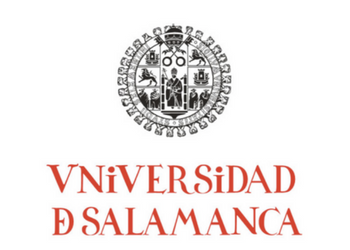

Universidad de Salamanca
speciality: Communication
What is a Communications degree?
Communications is a universal degree, which explores the traditional forms of communication such as verbal, physical, visual and written communication but also extends beyond that to cover mass communication and social media. There are different types of communications degrees depending on the degree level.
Overall, Communications focuses on teaching effective communication through social media, web, print, mass media and verbal communication. However, there are two types of Communications degrees that exist. For instance, a Bachelor of Arts in Communications in the US is focused on preparing students for careers that are connected to writing, marketing, promotions, journalism and public relations. In contrast, Bachelor of Science in Communications is dedicated to the technology used in the science behind modern communication and prepares students for careers in production or sound engineering.
A Communications degree teaches students about how media and communication influences cultures, societies and people’s identities. It involves a significant amount of critical writing and research and covers different disciplines such as journalism, public relations, entertainment production, marketing, event planning and so many more disciplines, which are somehow connected to exchanging information and conveying messages. There are also different specialization options associated with this degree, including political communication, mass media, journalism, health communication, etc.
It is worth noting that a Communications degree has many intersection points with psychology, sociology, linguistics and in some cases politics.
Benefits of a Communications degree
The main benefit of a Communications degree is its universal nature. It applies to almost any subject or professional setting. For example, some of the top careers in the field of Communications include announcers, art directors, editors, broadcast and sound engineering technicians, reporters, correspondents, broadcast analysts, technical writers, writers and authors, interpreters, translators, etc. Therefore, it keeps students’ career options open and doesn’t require them to have a predetermined career path that they want to follow.
Communications degrees prepare students to make an impact from the start of their careers unlike other degrees, which require further training. This is possible thanks to the multitude of professionally accredited degrees in Communications, which develop students’ abilities based on the established standards in the field. Moreover, there are many Communications courses, which offer work placement opportunities that enable students to gain the required professional skills before they have even started their career.
Another benefit associated with Communications degrees is the fact that they develop students’ written and verbal communication skills significantly.
A major advantage of Communications over other degrees is that in most cases there are no prerequisites required to study Communications.
Communications degree structure
The duration of a Communications degree varies depending on the country and degree level. For example, Higher Education Institutions in the UK offer 3-year Bachelor’s courses. In some cases, the course may extend to four years if students are given the opportunity to spend a year abroad or in industry between the second and third year through a sandwich course. Bachelor’s degrees in Communications in the US usually take around four years to complete.
Over the duration of a Bachelor’s Communications degree, students are expected to learn and be able to apply the established communications theories by developing the technical skills required to work in a professional setting. In the first year of their studies, students learn predominantly how media and communication influences cultures, societies and people’s identities. Optional modules may introduce them to professional communication, journalism, documentary, film-making, marketing, etc. In addition to the introductory topics, this degree allows students to learn about more complex areas of communications such as interpersonal relations, brand management and linguistics at a later stage. For instance, the second and third years enable students to get a deeper understanding of theoretical concepts related to media and culture and develop practical skills in research and communications. Additionally, students may have the opportunity to take optional modules and pursue their interests in different areas related to Communications such as gender, race, youth, culture, digital media, political communication, public relations, etc.
The most common duration of a Master’s degree in Communications is between 1 and 2 years depending on the mode of study (full-time or part-time) and country.
PhD and MPhil degrees in Communications require students to dedicate anywhere between 3 and 6 years to their studies depending on the mode and country of study.
7 Student Reviews
Filter reviews-
Translation and ...9 months ago
 FernandaCOGood professional approach and library network
FernandaCOGood professional approach and library networkStudying the master’s degree in Translation and Intercultural Mediation at the University of Salamanca gave me the opportunity to develop a strong basis for my professional career, since all the teachers have excellent qualifications and are professional translators able to give students a detailed insight into the actual translation industry in Spain.
The translation technology tools approach is also a highlight, as the program gives each student a temporary license of the most frequently used translation software in the market. Also, the contents are very well structured, and some of the courses deal with critical subjects such as the role of the translator among the progress of CAT tools and AI.
Regarding study resources and facilities, the University of Salamanca has a broad, well-equipped network of libraries with all kinds of online and physical resources. The faculty of Translation and Documentation has adequate facilities and is located in a privileged spot, right in front of the Cathedral.
Among the aspects that could be improved in the translation master’s degree, I would mention the teaching strategies, which can be old-fashioned at times; the amount of “hands-on” translation tasks and their respective feedback, which is rather scarce; and the approach used to teach how to actually use a CAT tool, which focuses on advanced features and leaves the basic ones behind, creating a visible gap between students with and without a translation bachelor’s degree.
View moreProgramme: Translation and Intercultural CommunicationDegree: Master'sGraduation: 2022Delivery Type: On CampusCampus: Salamanca -
Audiovisual Communication9 months ago
 StudentCNuni in salamanca
StudentCNuni in salamancaLa universidad de Salamanca, a name which precedes itself as one of the most famous and oldest universities in Europe. A place where you get to encounter students from across the globe and have marvelous experiences not only in culture but also in learning. Students, professors and staff alike are always prone to provide help whenever you need it. Classrooms are also well equipped for maximized learning experience.
View moreProgramme: Audiovisual CommunicationDegree: Master'sGraduation: 2022Delivery Type: On CampusCampus: Salamanca -
Audiovisual Communication9 months ago
 WilliamESMaster in Audiovisual Communication
WilliamESMaster in Audiovisual CommunicationHaving the opportunity to study the Master in Audiovisual Communication: Research and Innovation at the University of Salamanca has been a crucial step in my academic and professional career. This experience has left a profoundly positive impression on me, not only because of the exceptional quality of education I received, but also because of the impact it has had on my path to pursuing a PhD.
From the moment I entered the program, I was impressed by the breadth and depth of knowledge that the professors offered. Each subject was meticulously designed, addressing both the theoretical foundations and the latest trends in audiovisual communication and research. The teachers were not only experts in their fields, but also showed a deep commitment to student learning, encouraging active participation and critical thinking in each class.
A distinctive feature of this program was its focus on innovation. It was not just about acquiring traditional knowledge, but about exploring new ways of tackling the challenges in the field of audiovisual communication. The combination of theory and practice, along with the integration of emerging technologies, allowed me to broaden my perspective and gain valuable skills to face the constant changes in the industry.
The Master also provided me with the necessary foundation to start my doctoral studies. The research skills that I developed during the programme, such as the ability to critically analyze sources, design research projects and collect relevant data, turned out to be essential to take the first steps in my doctoral research. Furthermore, the mentoring and support of the professors were crucial in defining my research approach and setting a clear direction for my future studies.
I cannot fail to mention the enriching environment that the University of Salamanca offers. The university’s rich history and stimulating intellectual environment provided a perfect context for learning and exploration. Furthermore, the interaction with passionate and diverse peers further enriched my experience, fostering rich discussions and perspectives that fueled my academic and personal growth.
View moreProgramme: Audiovisual CommunicationDegree: Master'sGraduation: 2022Delivery Type: On CampusCampus: Salamanca -
Audiovisual Communication9 months ago
 StudentFRGood place to study
StudentFRGood place to studyA pleasant campus with a good atmosphere among the students and a large number of foreign students. The quality of teaching is relatively satisfactory, but varies from degree to degree and from professor to professor.
View moreProgramme: Audiovisual CommunicationDegree: Master'sGraduation: 2022Delivery Type: On CampusCampus: Salamanca -
Audiovisual Communication9 months ago
 JulietaARThe university and a great student environment
JulietaARThe university and a great student environmenthe University of Salamanca holds the distinction of being one of the oldest universities in Europe. This information not only serves as a symbol of the university’s historical significance but also acts as a bridge between the past and the present, welcoming generations of students and scholars.
View more
The University of Salamanca is renowned for its diverse academic programs that cater to a wide array of disciplines. The institution offers a comprehensive range of courses that ensure a well-rounded education for its students. The teaching staff, comprised of experts in their respective fields, fosters an environment of academic rigor, critical thinking, and intellectual exploration.
One of the university’s most distinctive features is its international appeal. Over the centuries, it has attracted students and scholars from around the globe. This multicultural environment enriches the educational experience, encouraging students to broaden their horizons and gain a global perspective.
In conclusion, IIts enduring commitment to education, research, and cultural enrichment continues to shape the lives of students and scholars from all corners of the globe.Programme: Audiovisual CommunicationDegree: Master'sGraduation: 2022Delivery Type: On CampusCampus: Salamanca -
Audiovisual Communication10 months agoSergioESMaster in Audiovisual Communication
What I would highlight about my time at the University of Salamanca and the Master in Audiovisual Communication on a positive level is the experience in the field of research, although there are several areas, including the choice of faculty, which I think could be improved.
View moreProgramme: Audiovisual CommunicationDegree: Master'sGraduation: 2022Delivery Type: On CampusCampus: Salamanca -
Audiovisual Communication10 months ago
 Williams AntonioESMore than what I was expecting
Williams AntonioESMore than what I was expectingAfter completing the Master in Audiovisual Communication: Research and Innovation, I can say with certainty that I received the best training in terms of research on media psychology and media effects for the Spanish media ecosystem. We were able to study and participate in research with some of the most prestigious and influential researchers in the field, which led to the publication of my first thesis. This master and all the experiences changed my life and opened many new opportunities for me, so now I recommend it to those who also feel the passion for audiovisual communication, sociology, education and media.
View moreProgramme: Audiovisual CommunicationDegree: Master'sGraduation: 2022Delivery Type: On CampusCampus: Salamanca

